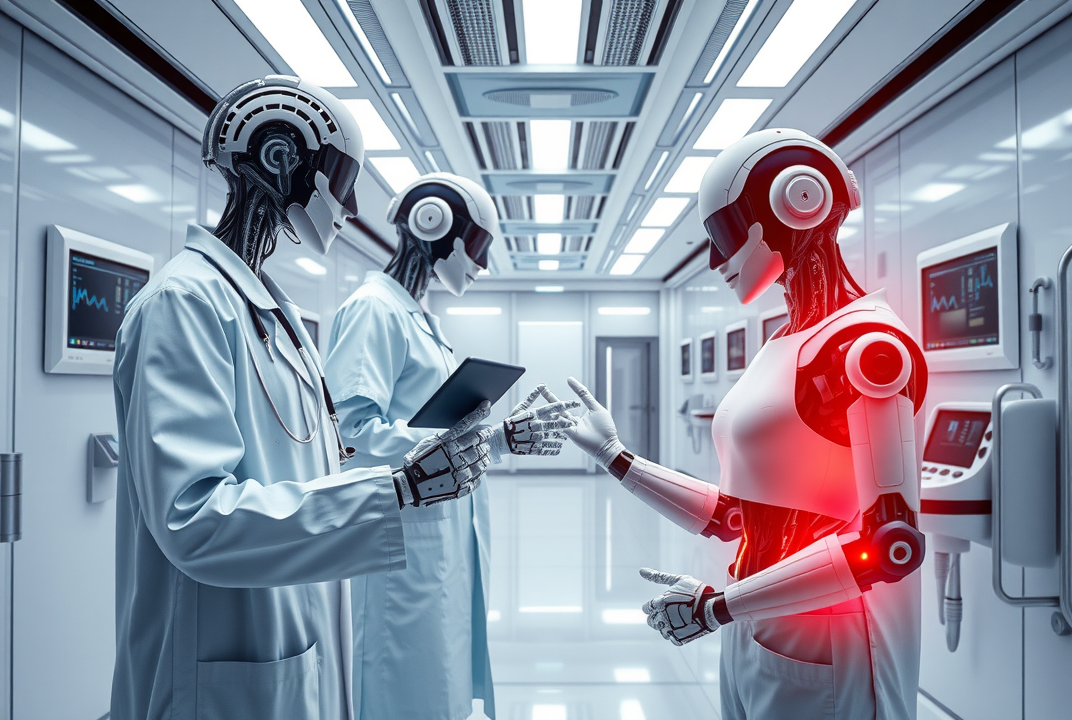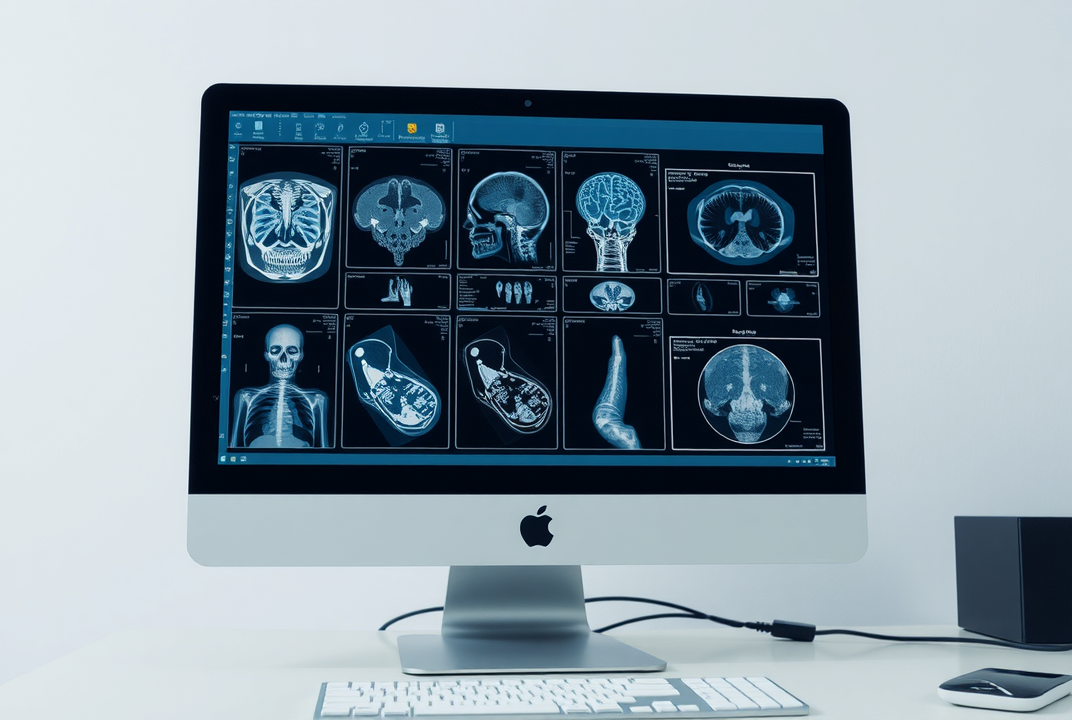How Artificial Intelligence is Transforming Healthcare

Introduction
Imagine a world where medical assessments take minutes and treatments are tailor-made through the power of artificial intelligence. AI's influence rapidly stretches across diverse sectors, but is particularly transformative in healthcare. In this article, we will explore how AI is shaping the future of healthcare, offering innovative solutions and improving patient outcomes.

This article examines AI applications in healthcare, focusing on diagnosis, treatment, healthcare operations, and policy implications. Let's delve into the technology that's enhancing medical services.
AI in Diagnostics
One of AI's most significant impacts in healthcare is diagnostics. AI systems can analyze complex medical data faster and often more accurately than human practitioners.
-
Enhanced Image Analysis: Tools powered by AI are revolutionizing radiology by quickly interpreting medical images, thus cutting down the wait time for results. For instance, AI algorithms are used in identifying patterns in X-rays and MRIs indicative of diseases.
-
Predictive Analytics: AI can forecast potential diseases before symptoms even appear, enabling preventive measures. For instance, predictive analytics in AI can analyze lifestyle and genetic information to flag patients at risk of chronic conditions.

AI in Treatment
AI's involvement in treatment extends from personalized care plans to real-time surgical assistance.
-
Personalized Medicine: AI utilizes patient data to create individualized treatment programs. Tailored therapies can significantly increase the success rates of treatments, particularly in complex diseases like cancer.
-
Robotic Surgery: With AI, precision surgeries are becoming standard. Robotic systems provide unparalleled accuracy, reducing complications and recovery times.
-
AI in Drug Development: AI accelerates the process of discovering new drugs. By analyzing vast datasets, AI can predict how new drugs will perform, significantly reducing the research duration and costs.

Healthcare Operations
AI streamlines numerous healthcare operations, making medical services more accessible and efficient.
-
Administrative Workflow: AI automates routine administrative tasks such as scheduling, billing, and record keeping, allowing healthcare professionals to focus on patient care.
-
Remote Monitoring and Care: With AI-powered devices, patients can be monitored in real time from any location. This enhances care for chronic conditions and reduces the need for frequent hospital visits.
-
Natural Language Processing: AI's capability to understand and process human language improves communication between systems and clinicians, aiding in efficient information retrieval and decision-making.
Policy and Ethics Considerations
As AI becomes integral to healthcare, its adoption raises important policy and ethical issues.
-
Data Privacy: AI systems often rely on vast amounts of personal data, necessitating robust data protection policies.
-
Bias and Fairness: Algorithms must be trained on diverse datasets to avoid bias, ensuring fair treatment across patient demographics.
-
Regulation: Effective regulation is essential to oversee AI applications and ensure they meet healthcare standards.
Conclusion
AI is not just enhancing healthcare; it's redefining it. From diagnostics to personalized treatment plans, its applications promise improved patient care and operational efficiency. As this technology continues to evolve, stakeholders must work together to address the accompanying policy and ethical challenges.
To stay informed and prepared, healthcare professionals, policymakers, and patients alike must remain engaged with ongoing technological advancements in AI. Embracing AI's potential responsibly will unlock a future where healthcare is accessible, efficient, and more responsive to the needs of individuals worldwide.
